9 Mins Read
How did Rude Health begin?
Rude Health began about 13 years ago in our kitchen in Southwest London and it was really not an original idea because so many founders who have been challenged and inspired to make better choices and to change the world for the better have come through food.
We as parents of young children realized that what we were finding in terms of foods for our children was a challenging environment. We’ve always been interested in food. We wanted to make food that we would feed ourselves and our children and recommend wholeheartedly.
What we did then and do now, and what has kept us in “rude health”, an English expression meaning to be up for life, is to always think so carefully about how and what we buy, and where we buy our foods and what we recommend to others.
So Rude Health began out of a simple naive observation that we couldn’t find what we wanted to eat.
What was your first product?
Our first product was a muesli. And muesli in Swiss German means mush. In America, porridge is also known by children as mush. And porridge is just hot muesli, it’s just that the Swiss got it wrong- they’ve been eating it wrong! So our first food, again naively, was a muesli and there is no intellectual property around muesli. You can make the world’s best muesli today: you can just go and buy the ingredients and throw it together. But we set out to make the world’s best muesli just in the same way we set out to make the world’s best tiger nut drink. [That’s our mission:] world’s best. As good as you can make at home.
 Was sourcing organic always a priority?
Was sourcing organic always a priority?
[It was a priority] always, right from the start. Something like 98% of our foods are organic. It’s difficult, absolutely. Unfortunately, if you think about it, how we price and cost food these days is not based on the environmental cost to nature. The irony is that conventional agriculture is subsidized by the government whereas organic agriculture is actually not, though in fact, they should be subsidizing organic, and taxing conventional to the ground!
When we are sourcing organic foods, we go down a narrower and narrower funnel to find our suppliers. And that’s fine, I love a challenge. But what it means is that when we do find suppliers and we do find farmers, we have friends for life. We have the same suppliers now as we had 10-12 years ago when we began. From everything that we do, whether it’s the team that I’ve built in London or whether it’s the group of suppliers we have, it’s all about sustainable, regenerative relationships where we feed each other and we learn from each other. And we respect nature through and through because whether you like it or not, you and I are of nature. Anything we do to nature is intrinsically harming us, ourselves. So, think about that!
And in that way, you start to make informed choices about what you eat, you are liberated and you start to spend more food, particularly food that you trust and you know where it comes from.
So go to a farmers market and thank them, thank them for coming in from the New Territories and bringing you this fabulous food that they have nurtured.
How do you see the food industry changing?
What’s happening now is the growth of micro businesses: micro farms, micro dairies, micro roasters, micro bakeries, micro breweries…bring it on!
In the old days, in Britain or in China, there would be a mill in every village, a micro mill that fed fresh food…freshly milled grains for the local people built around local agriculture.
The more we can do this, the more we can be liberated from commoditized debased foods.
 What about those who say organic or community agriculture can’t feed everyone?
What about those who say organic or community agriculture can’t feed everyone?
Based on what substantial evidence? Because when I travel in China, I see every verge being used to grow salads or vegetables. If you look at the wasted rooftops in urban worlds where we could be growing micro agriculture…
What I find most hard when I give my talks across the world, I come across people who are yearning for better.
The expression to be in rude health means to be up for life and if you are up for life, you are challenging, you are asking questions, you are opening ourself up, to taking back control…and then you are liberated. You can decide and feel for yourself what suits you.
Each of us are uniquely different in what pollutes us and what nourishes us in our overstressed so-called fast-paced environment. We need to have a think about how we feel about our relationship with food and then start to do some reading and thinking and listening, and to make better choices that reflect on our relationships with ourselves and with nature.
Let’s talk about your colorful, bright packaging! It always sticks out on store shelves…
If I said it was planned, I’d be lying. We spent years making great food in the early days in dour packaging- more craft/artisan style. We are an urban brand based out of Southwest London. We created packaging that we thought was subdued because the food spoke for itself. Well, what we had was great food in slightly less great packaging. Our communications wasn’t as dynamic as the quality of our food. So we did some research and some navel scratching and star gazing and we came to the conclusion that we could be as bold as we liked. We could really stand out. We could actually both amuse you and challenge you, please you and [do something] which no one could follow. You have to have your own identity. What we have found is that the more upbeat we are, the more positive we are, the more people respect it. I have built a business based on three core principles: that we know what we are talking about, that we are generous with that knowledge and that we can be trusted: we have never wanted to sell food that we wouldn’t give to ourselves and our own children.
 All your products are preservative-free. Is it challenging to create products with long shelf lives that can be shipped globally?
All your products are preservative-free. Is it challenging to create products with long shelf lives that can be shipped globally?
What we do is produce foods that naturally have a long shelf life. If you look at our sprouted grains, for example, it’s raw sprouted porridge oats, they have a naturally long shelf life. They are stable because the seed has been sprouted to become a vegetable, which is then very gently dried to keep it raw- that has a 2 year shelf life. But it’s a natural shelf life that our ancestors would have understood.
In this day and age, most of the foods that are being produced to be convenient are full of preservatives. They are designed to be great-looking for as long as possible on shelves. Your body is designed to digest and break down foods of which preservatives are not part of its landscape. Your digestive system works hard- we are mono gastric, we have one stomach and a simple digestive system and if you load it with preservatives, it struggles. And this is part and parcel of a very complex industrial commoditized food landscape that we have fallen into willingly into through gluttony and the pursuit of cheap food over the last few generations. I’m not blaming anyone, I grew up with this. But I’ve become a challenger of what constitutes nourishment and all I am doing now is taking it out to the wider world through Rude Health, which is my responsibility.
Did you plan for your success?
If I had thought 12 or 13 years ago that I would sitting in Hong Kong talking about the brand…no. I still think like a micro-business. We are still a family-run business. We have a cafe in Fulham and the story behind that cafe is that we moved to a larger office for our team of 25 and the space was a little big and some bright spark on the team said let’s have a cafe so I said let’s have a cafe. So it was as strategic as that. There are plans for more [cafes] in London and we will roll them out in our small way. I encourage small businesses, I willingly share all my experiences to help others start their own micro businesses.
As I said, this is fundamental in our taking back control over our food landscape.
 Any plans for any new products? We know you have just launched tiger nut milk, which is not a usual ingredient in the UK.
Any plans for any new products? We know you have just launched tiger nut milk, which is not a usual ingredient in the UK.
That’s a very good questions because actually our innovation is ancestral. Tiger nuts or horchata or the use of tiger nuts to make a drink in Spain [is ancestral]. We are always looking back for ancestral inspiration.
We don’t make Frankenstein food. We don’t go into a laboratory when we are talking about innovation.
Whether it’s kombucha or kimchi or sauerkraut, we are looking more at fermented living foods at the moment, and they have a naturally long shelf live but yet are alive because they have been brought into balance through the action of bacteria as a preservative.
I love fermented foods: sprouting, activating, fermenting, is for me, I love sour. Over the last three generations, we’ve been abused by sweet and salty and bad salt and bad sweet… We’re seeing among the hipster generation and the young, those who are challenging their food landscape, is that we need to reclaim sour, and bitter.
So are industrialized food systems the problem?
We as Brits industrialized first, we urbanized first, which meant we have the longest legacy of being most removed from nature. We fled into the cities to seek work and to better ourselves and out of that came a disconnect with food. And in the last 3 generations has [is] a clamor, a desire to find a better way, a better relationship with food.
There’s nothing worse than having a processed wheat cereal breakfast with homogenized skimmed milk followed by a sandwich at lunchtime made from what is essentially debased grain and then pasta for dinner. You’ve just had three highly refined, processed grain meals. Your gut biome is in shock. It’s screaming for nutrient density through variety and freshness. Sprouting releases and breaks down the complex sugars, the starches, into simple sugars and allows the enzymes to act and become our friends. Activating does the same.
We need to re-embrace, re-adopt, re-format ourselves into a better appreciation for variety, local and growing ourselves.
As told to Green Queen Editor-in-Chief Sonalie Figueiras. This interview has been condensed for clarity.
About Nick Barnard
Nick Barnard is the owner and co-founder of UK-based healthy and natural brand Rude Health and Rude Health Café in London. A World Porridge Competition Champion, he is the host and judge of the Rude Health Porridge Competition. He is also the author of Eat Right, a cookbook celebrating traditional food wisdom and recipes. In his spare time, Barnard is also a stunt pilot.
All photos courtesy of Rude Health, lead courtesy of Green Queen.

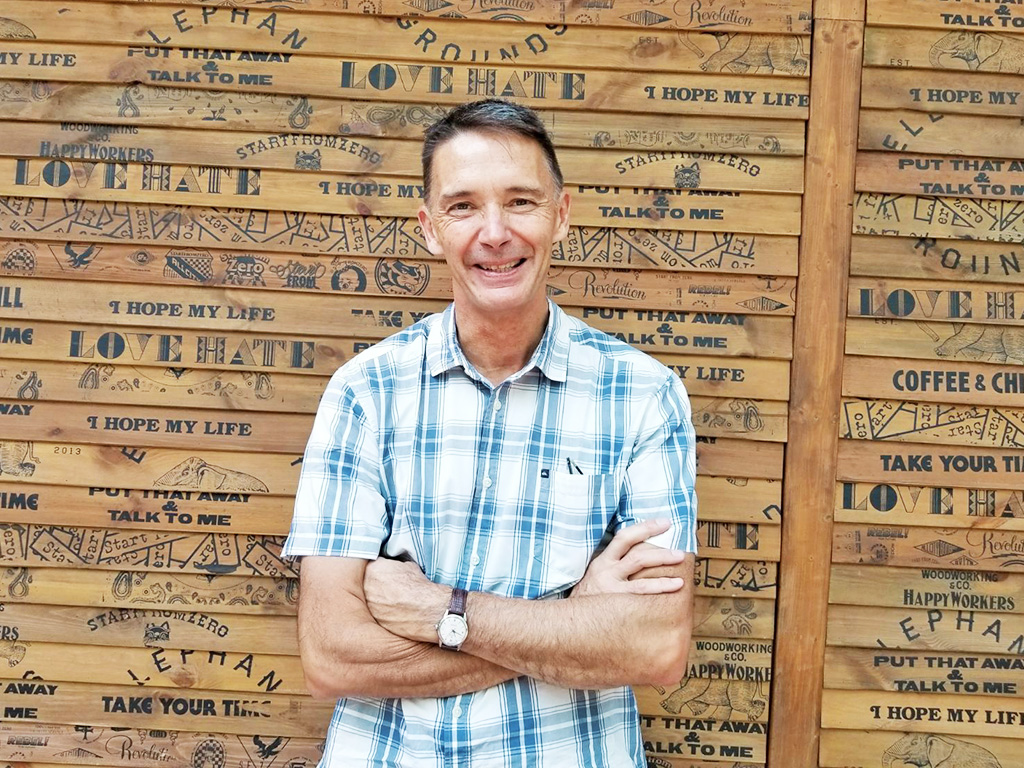
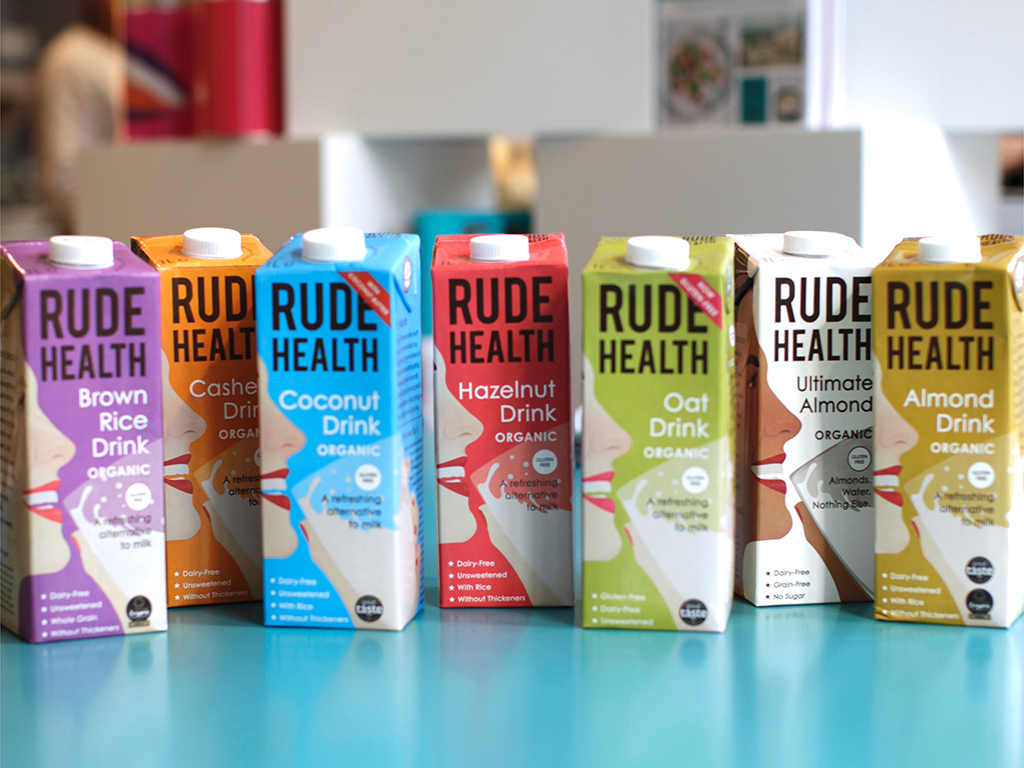 Was sourcing organic always a priority?
Was sourcing organic always a priority?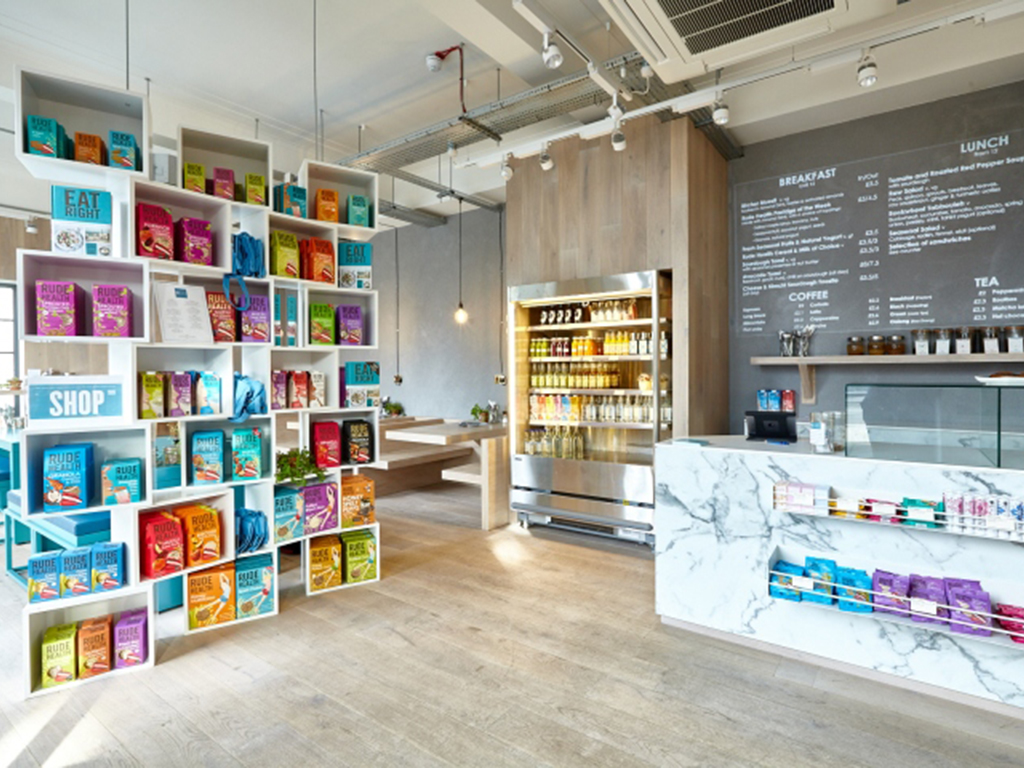 What about those who say organic or community agriculture can’t feed everyone?
What about those who say organic or community agriculture can’t feed everyone?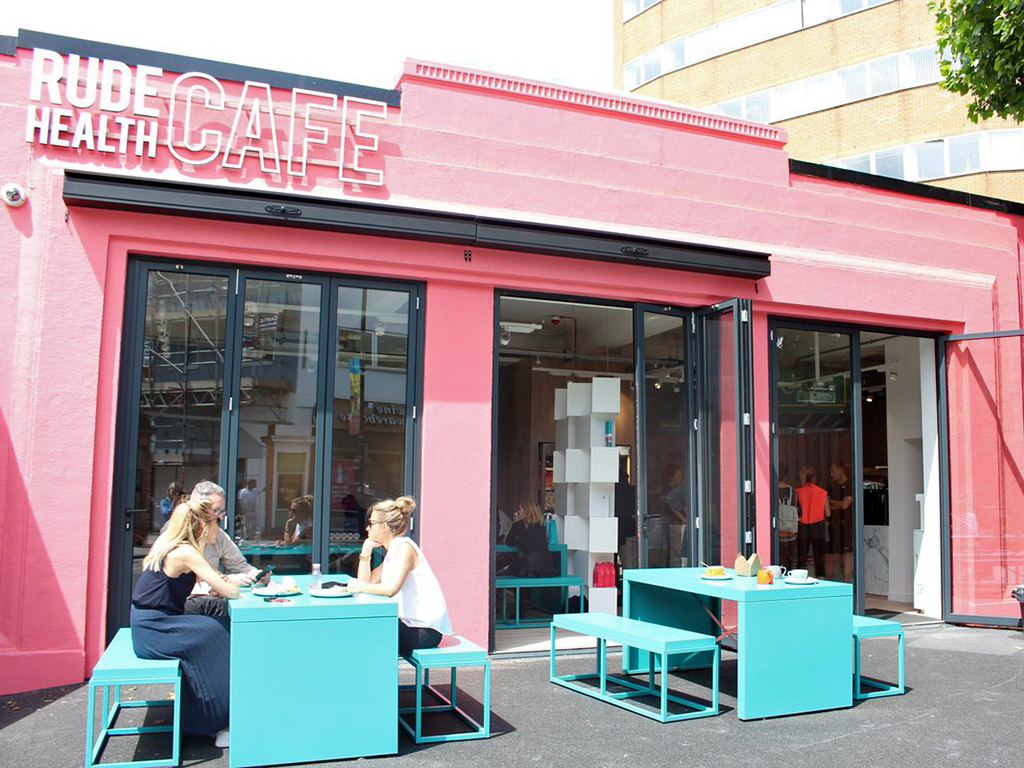 All your products are preservative-free. Is it challenging to create products with long shelf lives that can be shipped globally?
All your products are preservative-free. Is it challenging to create products with long shelf lives that can be shipped globally?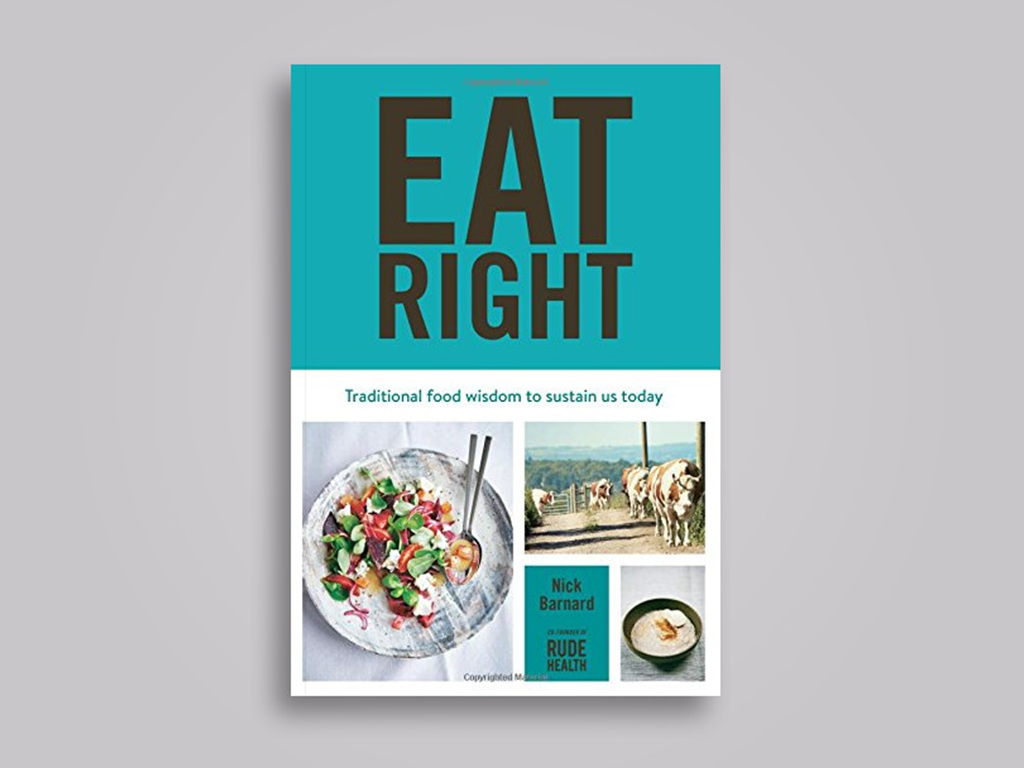 Any plans for any new products? We know you have just launched tiger nut milk, which is not a usual ingredient in the UK.
Any plans for any new products? We know you have just launched tiger nut milk, which is not a usual ingredient in the UK. 

